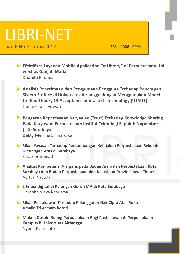Jurnal Biometrika dan Kependudukan
ISSN 2302707X
Vol. 1 / No. 1 / Published : 2012-08
Related with : Scholar Yahoo! Bing
Original Article :
Correlation between type contraception and duration of contraceptive use with menstrual disorders in midwives in private practice
Author :
- Mahmudah*1
- Riyanti Januani Anggia*2
- Departemen Biostatistika dan Kependudukan Fakultas Kesehatan Masyarakat Universitas Airlangga, Surabaya
- Alumni Fakultas Kesehatan Masyarakat Universitas Airlangga, Surabaya
Abstract :
Effects of menstrual disorders that occur depend on usage of contraception. Menstrual disorders caused due to hormonal imbalance thus endometrial changes. Complaints or symptoms will decrease with increasing duration of usage. For several acceptor was afraid if they did not menstruate, but on the other acceptor accepted the situation. The research goal was analyze relations type and usage of use of contraception with menstrual disorders. Types of observational research analytic with the cross sectional. The research sample was some acceptor contraceptive users of hormonal in giving the shot in June on BPS (Private Practice Midwives) Wolita M. J. Sawong in Surabaya and systematic random sampling technique. Research variables are the type of contraception, duration of use of contraception, and menstrual disorders including menstrual patterns, long menstruation, menstrual cycles, and blood spots (spotting). The data was collected through interviews with questionnaires subsequently processed using logistic regression analysis. The results of logistic regression analysis obtained that 3 month injectable contraceptive was likely to have menstrual disorders 15,4 times higher than other types of contraception for 1 month. 3 month injectable contraceptive is likely to have longer menstrual disorders 18,2 times higher than other types of contraception for 1 month. 3 month injectable contraceptive is likely to have menstrual disorders 7,52 times higher than other types of contraception 1 month. Majority characteristics of respondents aged between 20-35 years at 72,9% which is a healthy reproductive period, 37,6% high school educated, majority respondents job was housewife 52,9% and the number of children who had many respondents was a person with a percentage 50,6%. Types of contraception are much in demand of contraception 1 month respondents was 57,6%, 37,6% 3 month injections, pills and 4,7%.
Keyword :
types of contraception, duration of contraceptive use , menstrual disorders,
References :
BKKBN,(2004) Keluarga Berencana dan Kesehatan Reproduksi:Kebijakan Program dan Kegiatan tahun 2005-2009 Jakarta : BKKBN
BAPEMAS dan KB,(2010) Pelayanan KB - : BAPEMAS dan KB
BKKBN,(1999) Pelayanan Informasi Kontrasepsi Surabaya : BKKBN
Catur, A,(2008) Hubungan Lama Pemakaian Depo Medroksiprogesteron Asetat Dengan Gangguan Menstruasi Di Perumahan Petragriya Indah Purwodadi Purwodadi : Akademi Kebidanan An-Nur
Glasier, Anna, Ailsa Gebbie,(2006) Keluarga Berencana dan Kesehatan Reproduksi Jakarta : EGC
Archive Article
| Cover Media | Content |
|---|---|
 Volume : 1 / No. : 1 / Pub. : 2012-07 |
|












